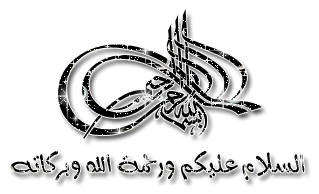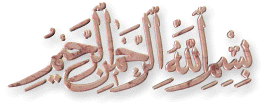1. Muharram 2. Safar 3. Rabi' al-awwal 4. Rabi' al-thani 5. Jumada al-awwal 6. Jumada al-thani 7. Rajab 8. Sha'aban 9. Ramadan 10. Shawwal 11. Dhu al-Qi'dah 12. Dhu al-Hijjah | |
Rabi' al-awwal (ربيع الأول) is the third month in the Islamic calendar. The prophet Muhammad is considered by some Sunni Muslims to have been born on the twelfth of this month, and many Muslims celebrate the Mawlid on this day. Shi'a Muslims believe him to have been born on the dawn of the seventeenth day. The name means the first [month]/beginning of spring.
Timing
The Islamic calendar is a lunar calendar, and months begin when the first crescent of a new moon is sighted. Since the Islamic lunar calendar year is 11 to 12 days shorter than the solar year, Rabī‘ al-Awwal migrates throughout the seasons. The estimated start and end dates for Rabī‘ al-Awwal are as follows (based on the Umm al-Qura calendar of Saudi Arabia
AH | First day (CE / AD) | Last day (CE / AD) |
1431 | 15 February 2010 | 16 March 2010 |
1432 | 4 February 2011 | 5 March 2011 |
1433 | 24 January 2012 | 22 February 2012 |
1434 | 13 January 2013 | 10 February 2013 |
1435 | 2 January 2014 | 31 January 2014 |
1436 | 23 December 2014 | 20 January 2015 |
1437 | 12 December 2015 | 10 January 2016 |
Rabī‘ al-Awwal dates between 2010 and 2015 | ||
Islamic events
§ 08 Rabī‘ al-Awwal, death of Twelver Imām, Hasan al-‘Askarī
§ 12 Rabī‘ al-Awwal, some Sunni's observe Mawlid in commemoration of the Muhammad's birthday
§ 17 Rabī‘ al-Awwal, Shi‘ah Muslims celebrate the birthday of Muhammad and the Shī‘ah Imām, Ja‘far al-Sādiq.
Other events:
§ The Hijra (migration) took place in this month
§ Eid-e-Zahra (a.k.a. Eid e shuja), a celebration of Shi‘ah Muslims
§ Marriage of Muhammad to Khadijah
§ Building of the Quba Mosque (1st mosque in Islam)
IDENTIFICATION OF OUR PROPHET (S.A.W)
IMAMAAT : Rasul-Khuda, Rehmatul-lil-Aalameen
TITLE : Abul-Qasim
FATHER : Hazrat Abdullah
MOTHER : Hazrat Bibi Amina
BIRTH DATE : Friday 17th Rabi-ul-Awal 570 A.D.
AGE : 63 Years
DIED ON : 28th Safar, 11th Hijrah
DEATH PLACE : Medina
HOLY SHRINE : Medina, Besides Masjid-e-Nabavi
Date of Birth of Prophet Muhammad (saw)
Most historians are silent about the exact date of birth of the Prophet (saw), where as those who do mention it, there are many contradictions and disagreements amongst them.
Muhammad Husain Haykal in the biography of Muhammad (saw) writes :
“Historians have disagreed about the year of Muhammad’s birth. Most of them hold that it took place in “the Year of the Elephant,” i.e. 570 C.E. Ibn ‘Abbas claims that Muhammad (saw) was born on “the Day of the Elephant.” Others claim that he was born fifteen years earlier. Still others claim that he was born a few days, months, or years, after “the Year of the Elephant.” Some even assert that Muhammad was born thirty years and others seventy years later than “the Year of the Elephant.”
Historians have also differed concerning the month of Muhammad’s birth although the majority of them agree that it was Rabi` al Awwal, the third month of the lunar year. It has also been claimed that he was born in Muharram, in Safar, in Rajab, or in Ramadan.
Furthermore, historians have differed as to the day of the month on which Muhammad was born. Some claim that the birth took place on the third, of Rabi` al Awwal; others, on the ninth; and others on the tenth. The majority, however, agree that Muhammad (saw) was born on the twelfth of Rabi` al Awwal, the claim of ibn Ishaq and other biographers.”
The presence of such disagreements on the exact day of his birth, proves that birthdays were not important to the Arabs. Arabs were very well known for their great memorization skills. They used to know the lineage of their families and other Arabs by heart; they used to know hundreds of verses of poetry by heart, a great feat of memorization.
‘Amr b. Sharid reported his father as saying: One day when I rode behind Allah’s Messenger (may peace be upon him), he said (to me): Do you remember any Poetry of Umayya b. Abu Salt. I said: Yes. He said: Then go on. I recited a couplet, and he said: Go on. Then I again recited a couplet and he said: Go on. I recited one hundred couplets (of his poetry). [Muslim 28:5602]
If the birthday of Rasool Allah (saw) was such an important celebration, surely they would have remembered it and noted it down. Further more, there is also no proof from history that Prophet Muhammad (saw) mentioned his exact date of birth nor encouraged his followers to hold milads or recite durood loudly on this day.
Neither is it recorded from any Sahaba that they celebrated his date of birth. However, he used to fast on Mondays, irrespective of the month and according to his Hadith he was born on a Monday and the deeds are also presented to Allah on Monday. He took up this day, not as a celebration but as a day of Worship.
Hadith References [Maliks Muwatta 6:2606][Maliks Muwatta 47: 017][Tirmidhi 42:008]
Conclusion
History proves that Prophet Muhammad (saw) never celebrated his own birthday. He used to fast on Mondays irrespective of the month. All that we know for sure is that he was born on a Monday and that deeds are presented to Allah on Mondays, which is the reason he used to fast on Mondays. His exact date of birth and even the month is a subject of debate, which further proves the insignificance of birthday celebration of Prophet Muhammad (saw)
Further more none of the Sahaba, his closest companions ever celebrated his birthday, decorate mosques, read aloud poetry in his praise or hold milads or take out processions on 12th Rabiul Awal.
So when we say that we dearly love our Prophet saw and therefore there is no harm in displaying this love on 12 Rabiul Awa, we need to analyze our selves and ask our selves…
If companions of Rasool Allah did not celebrate Milad then why are we celebrating it?
Do we love Prophet Muhammd saw more than his closest companions who sacrificed their lives, family , wealth and property for him? Do we love our Prophet (saw) more than these sahaba? Do we know a better way of expressing our love then the sahaba?Are we better Muslims than the Sahaba Karam (ra)? Are we more pious than Abu Bakar and Umar and Ali and usman radiallahu anhum?? Are we more knowledgeable than these companions? Obviously Not!
This tradition of Milads seeped into Muslims culture later on and was not part of original Islam. It is clearly an innovation a new thing added into Islam which is a Bida and therfore should not be celebrated as it was not part of original Islam practiced by the companions at the time of Prophet Muhammad (saw)
Rasool Allah (saw) him self said:“Whoever has performed a deed which is not in the religion from its inception is rejected (not acceptable to Allah)“. (Bukhari and Muslim)
So how should Muslims prove their love for Rasool Allah (saw)? What is the right way to proclaim and display your love for Rasool Allah (saw)
Listen to lectures by Dr.Farhat Hashmi and read more articles here
Read Love for Rasool Allah – The right Perspective
HAPPY EID MILAD UN NABI (S.A.W)

















0 comments:
Post a Comment